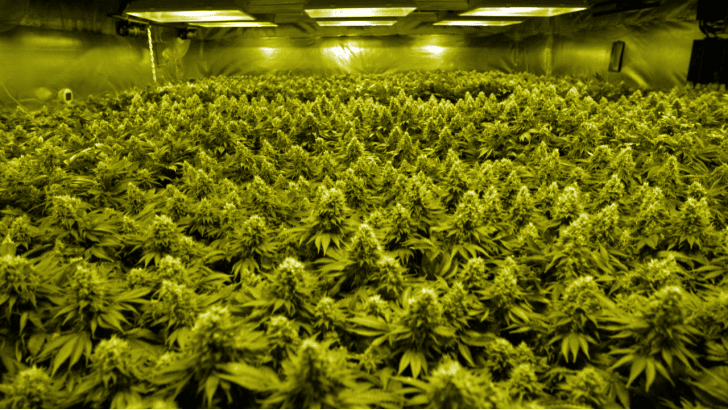
Helping to reduce the carbon footprint of cannabis
By mission, the Massachusetts-based Climate Resources Group (CRG) is an “independent consulting firm that works with a range of stakeholders to seize opportunities at the intersection of climate change, business and public policy.”
So, what are they doing in the cannabis space?
For starters, says CRG principal Sam Milton, the company is working to help “reduce the environmental impact of commercial marijuana cultivation.” For this latest installment in a series of interviews with various canna-business interests, however tangential, we asked Milton about where his outfit intersects with the burgeoning Mass industry.
Climate Resources Group is an environmental consulting company, so why has the legalization of cannabis drawn your attention?
One of the greatest challenges of our time is global climate change. Full stop. If you look at the science and climate trends, it is clear that humans have managed to dramatically alter the planet’s climate. If you think about how massive Earth’s atmosphere is, this is absolutely astounding. But climate change isn’t happening in a vacuum; it’s largely the result of fossil fuel-driven industrialization. The cannabis industry largely relies on fossil fuels to power its notoriously energy-hungry facilities in an industry which is exploding. Ultimately, this will exacerbate the climate challenge. So I’ve taken on the mission of working with the cannabis industry and stakeholders to shrink its carbon footprint as low as possible.
What possibilities does the future hold for us here in Massachusetts with legal cannabis? What changes are likely within our lifetime from an environmental standpoint?
Massachusetts has a real opportunity to lead in sustainable cannabis cultivation, but the question is: how many poorly designed grow ops will come and go before Massachusetts cannabis cultivation facilities are as environmentally responsible as they can be? As in every other state with legal marijuana, many commercial facilities are built with a focus on low cost and quick setup. If the “quick and dirty” model persists for years to come, the environmental impacts will be serious: we’ll see a sharp uptick in statewide power demand and commensurate power plant emissions, significant solid waste from discarded lights and growing media, and impacts on freshwater resources from high rates of consumption and wastewater discharge. The overall effect has the potential to be detrimental to life on Earth, but it doesn’t have to be that way.
What are the environmental challenges facing the cannabis industry, and what improvements could be made?
Many standard practices in conventional cannabis cultivation carry significant environmental impacts. For example, powering and cooling lights that indoor growers depend on require massive amounts of power, and if the electricity comes from the power grid it has a sizable carbon footprint that worsens climate change. In many cases, water management systems are poor or nonexistent, so we’re seeing cases where plants are getting more water than they need. In many cases, the runoff contains large amounts of nutrients that are great in small quantities for your plants, but not so great when dumped into a sewer or stream. The good news is there are off-the-shelf alternatives to the dirtier default options, both for home and for commercial growers.
Many cannabis cultivators are interested in adopting greener growing methods, but the start-up costs associated with doing so are cost prohibitive. What does your organization recommend to help this situation?
The least efficient way of growing is sadly likely going to be the cheapest, and believe me as someone who likes to live frugally I totally get the urge to keep upfront costs low. But growers only need to consider their ongoing operating costs to understand cheaper lamps and other equipment will cost them much more over time. For lights in particular, this is because they burn out quickly, draw more power and require significant A/C to prevent plants from overheating. Additionally, commercial growers can get utility rebates to further bring down those upfront costs. Some businesses can offer financing options including leasing the lights to growers, minimizing any initial pain.
If you could provide one piece of advice to Massachusetts’ Cannabis Control Commission, how would you help them regulate the industry?
Several thoughts come to mind, but if I had only one, I’d want the CCC to direct commercial growers to share data about their energy and water use with the state or with a trusted third party. This data would help growers and regulators better understand cultivators’ energy and water usage patterns, paving the way for more efficient practices to become the norm. The fact is that a lack of available data is one major reason why current inefficient cultivation approaches persist. Legalization will open doors to a truly sustainable industry, and this is why I’m excited to be working on these issues. It’s one piece of the puzzle in solving climate change but an important one.
























